new posts in all blogs
Viewing: Blog Posts Tagged with: Life of a Writer, Most Recent at Top [Help]
Results 1 - 25 of 51
How to use this Page
You are viewing the most recent posts tagged with the words: Life of a Writer in the JacketFlap blog reader. What is a tag? Think of a tag as a keyword or category label. Tags can both help you find posts on JacketFlap.com as well as provide an easy way for you to "remember" and classify posts for later recall. Try adding a tag yourself by clicking "Add a tag" below a post's header. Scroll down through the list of Recent Posts in the left column and click on a post title that sounds interesting. You can view all posts from a specific blog by clicking the Blog name in the right column, or you can click a 'More Posts from this Blog' link in any individual post.
There was an interesting kerfuffle recently as Amazon began transitioning some royalties over to pages read, as opposed to downloads. Will Oremus is one
who thinks it makes sense.
It got me thinking. How
should authors be paid?
What about all those used book sales that authors aren't compensated for? Library borrowings? Back to the patronage system?
Anyone got some creative ideas?
Art: Money to Burn by Victor Dubreuil
I recently had quite a health ordeal, and for some reason it reminded me of writing and publishing. Probably because everything does. Bear with me on this one.
A month back, while in the early days of
my new job, I bit into a piece of toast and felt a sharp pain in one of my molars. I didn't think that much of it -- I've had some jaw/tooth aches in the past that didn't amount to much -- and I went about my business, planning to check with my dentist if the pain didn't go away. Then, a week later, I proceeded to get immensely sick, coming down with a 104.5 fever. (Spoiler: I survived!)
On top of that, my tooth still hurt like crazy whenever I accidentally bit into something, so as I was recovering from that illness thanks to the miracle of antibiotics, I went to the dentist. Sure enough, I had a broken tooth beyond repair and an infected root. It's probable that my illness was connected to the broken tooth, as a point of entry for some bacteria or another. Annnd I had to have the tooth extracted. Which I really didn't want to do. But I had to.
Now, thankfully, I'm on the other side of everything. My tooth is gone, my gum is healing, I can finally eat normally again, and I'm back to 100% health. Win!!
So why am I telling you this?
Last night as I was eating a delicious crab sandwich without any pain, I got to thinking, "You know what? Having *no* tooth is better than having a broken tooth."
Indeed. And then I saw a commercial for Entourage, which reminded me of agenting, and then THIS BLOG POST WAS BORN.
There are so many times in your publishing life where it's tempting to hold on to something that's broken. Maybe you have an agent who
you kind of realize is not a good agent, or you are presented with a publishing deal from a micro publisher you're not totally sure about. But, having an agent is better than having no agent, right?
No.
Just as my broken tooth wound up getting me sick, a bad agent can do immense damage to your career if they send your manuscript around badly. It's harder to find another good agent to take you on, and publishers may not reconsider your manuscript if they've already seen it. They can also set you back from looking for a good agent. And unscrupulous "publishers" out there can take advantage of you financially.
Having *no* agent is better than having a bad agent.
Having *no* publishing deal is better than having a bad publishing deal.
You may worry about the appearances of losing something that felt hard-earned, and no doubt it's painful in the short term, but you have to think of those bad actors like a broken tooth that you need to extract in order to restore yourself to publishing health.
You will heal. You'll get back on track. And you'll realize you're better off. Good riddance, broken molar.
Art: The Toothpuller by Carvaggio
The first rule of inspiration is that the best ideas come to you in the precise moment when you are least equipped to write them down.
How do you make sure you don't lose those ideas? How do you keep track of them?
My method is pretty simple: I email them to myself. Chances are my phone is nearby and if it's not, I'm probably too panicked to have a good idea anyway.
I may have a problem.
What about you?
Art: The Alchymist, In Search of the Philosopher’s Stone by Joseph Wright
Read a book you love and want to let the author know how much you enjoyed their work?
Do it publicly. Write a review.
It's hard out there for a writer. There is a vast ocean of books, and making yours stand out is a daunting challenge. So when writers hear directly from readers via email -- yes, absolutely, those notes are deeply appreciated, but I've heard more than one writer say they are tempted to shout from the mountaintops, "PLEASE SAY THAT ON AMAZON."
Or Barnes & Noble. Or Powells. Or Goodreads. Or Twitter. Or a blog. Or all of the above. Something, anything public.
Reviews matter. They make it more likely that other people will buy the book, and sales are what will keep the author's writing career afloat. If you love a book and write a great review you can help cancel out those negative reviews and help the author where it really counts.
Sure, don't hesitate to reach out directly to an author to tell them how much you appreciated their book. They'll love it even more if you include a link to a great review.
Art: The Two Sisters by Auguste Renoir
To self-publish or traditionally publish. That is the question.
Whether tis nobler in the mind to suffer the slings and arrows of agents and publishers or to take arms against a sea of books on Amazon, and by being among them, rise above? To die, to sleep (oh wait you won't), to sleep perchance to dream of fame and riches... aye there's the rub.
Ahem. Sorry.
So. You have yourself a book. Should you just go ahead and self-publish and see how it does? Should you try your luck with agents and publishers? Should you try agents and publishers first and then self-publish if that doesn't work?
Having traditionally published the
Jacob Wonderbar series and self-published
How to Write a Novel, I've seen both sides of the publishing world.
Which way should you go? Here are seven questions to ask yourself:
1) Is your book a niche/passion project or does it have broad, national appeal?In order to attract a traditional publisher, especially one of the major ones, you're going to need to have a book that fits squarely into an established genre, is of
appropriate length, and has mass commercial appeal.
Be honest with yourself. Is your book something that has broad, national appeal or is a niche? Is it a potential bestseller or something you just wrote to, say, have your family history recorded for posterity?
If it's hyper-specialized you might want to either try for a similarly specialized publisher, or just go ahead and self-publish. And if it's a passion project without commercial potential you're probably best-served going straight to self-publishing.
2) How much control do you want over the publishing process?If you go the traditional route, you'll have an agent who will likely want you to edit your work before submission. You will (hopefully) have a publisher who will want you to revise your work. You won't have approval over your cover, and you'll probably only have mutual consent on your book title, meaning if your publisher doesn't like it you'll have to think of a new one that you both can agree upon. You'll probably have limited control over how and where your book is marketed.
Traditional publishing is a group process and you absolutely cede some control over your book. This can be a good thing, chances are you're dealing with experienced people within the publishing industry who are experts in their fields, but you may be frustrated at times with decisions you don't agree with.
Meanwhile, with self-publishing, everything is up to you. Edits, cover, title, fonts, marketing, whether or not you want to include that stream of conscious sequence about the philosophical implications of of cotton candy... all your choice.
3) How much does the validation of traditional publishing matter to you?The stigma surrounding self-publishing has largely dissipated, but it's not gone entirely.
And there's still something gratifying about doing something as hugely difficult as making it through the traditional publishing process, having your work validated by professionals, and being paid for your efforts. The names Penguin Random House, HarperCollins, Simon & Schuster... they still matter to many people.
Success is success, and in the end it's the readers who are the ultimate validators. Do you want the validation that comes with traditional publishing? Or are you cool going straight to readers?
4) How important is it for your book to be in bookstores and libraries?While you might be able to strike up some individual relationships with local bookstores and libraries as a self-published author, the surest route to bookstores and libraries is through traditional publishers, who have wide distribution.
Do you care about being in bookstores? Are you writing in a genre, like books for children, where libraries are super-important? If so, you might want to pursue traditional publication.
5) How capable are you at self-promotion?There's no guarantee that a publisher is going to adequately promote your book, but they'll at least give you a bit of a boost at bare minimum.
If you self-publish, you're entirely on your own. You don't necessarily have to be a social media maven or a celebrity in order to give your book the boost necessary to generate crucial word of mouth, but
you're going to have to do something.
6) Can you afford to invest money in your book?Say what you will about traditional publishing, but one great thing about it is that it is not very cost prohibitive. You might incur some postage sending your manuscript around or if you
choose to pay an editor before pursuing publication, but agents don't charge you until they get commission for selling your book, and publishers pay
you.
Self-publishing similarly doesn't have to be hugely cost-prohibitive, but there are a lot of tasks involved in self-publishing, such as generating a cover, editing, copyediting, formatting, self-promotion, that you're either going to have to spend the time to do yourself or pay someone to do for you.
Depending on how much time you have to spend and your level of expertise, you may end up spending a thousand dollars or two to effectively self-publish. Can you afford that? (And you shouldn't necessarily assume you're going to get it back).
7) How patient are you?Choosing traditional or self-publishing isn't necessarily an either/or decision. You can absolutely decide to pursue traditional publishing first and fall back on self-publishing if you so desire.
But even in the best case scenario, traditional publishing can take forever. It can take a year or more to query agents, and then a year or more to find an editor when you're on submission to publishers, and then even if you get a book deal it can be a year or two after that before your book comes out. It can very easily add up to two or three years or more
after you finish your manuscript.
Meanwhile, when I finished
How to Write a Novel, it was up for sale a few days later. Self-publishing is practically instantaneous.
Are you the patient type? Do you want to cut to the chase? That can perhaps be the most important factor of all.
How did you decide whether to pursue traditional publishing or self-publishing? Did I miss anything?
Art: Le tour de la France par deux enfants by G. Bruno
Much like athletes warming up for a big game, just about every writer I know has a routine to get them ready and focused to write.
What's yours?
Mine: I wake up relatively early on the weekend (7:30-8:00am), start up a pot of coffee, go outside to get a bagel or breakfast sandwich, come back, turn on soccer, answer emails, and then get myself started writing.
What about you?
Art: Été by Claude Monet
We write.
We write because we want to change the world.
We write because we want to walk a mile in someone else's shoes.
We write because we want to travel new places.
We write because we want to see what we know in a new way.
We write because we want to create.
We write because we want to connect.
We write because we want to inspire.
We write because we want to see the future.
We write because we want to remember the past.
We write because it's an immense challenge.
We write because it's an incredible feeling to finish.
We write because we want to make magic.
We write because sometimes we just can't deal.
We write because we seek the truth.
We write because we want justice.
We write because we're angry.
We write because we're happy.
We write because we're lost.
We write because we want to find something better.
We write because we love.
Why do you write?
Want to write your story? Check out my guide to writing a novel, How to Write a Novel: 47 Rules for Writing a Stupendously Awesome Novel That You Will Love Forever, on sale for just $4.99 at:Amazon KindleApple iBooksB&N NookKoboSmashwordsThe print edition is on sale for just $11.99 at:
AmazonBarnes & NobleCreateSpace
 |
| This happened! I'm on Instagram here. |
I didn't intend to take nearly a month off of blogging and writing entirely, but that is exactly what ended up happening. Thank you for your inquiries. The missing person report was perhaps a little excessive, but nonetheless appreciated.
One of the interesting things about being a blogger and writer is that you have to wring your life like a wet towel and see if you can find some spare droplets of time. Lately my life towel has been bone dry. I haven't even been on Twitter!
Things like this can happen to any writer:
- My day job is going so great that I am throwing my brain into it with reckless abandon and leaving myself with little spare mental energy for side projects.
- Oh, but I do have side projects! I'm taking a General Assembly class on product management in order to help me develop great websites for my day job. It's been an excellent learning experience.
- And I've been freelance editing, which has been really fun! It's great to be working directly with authors again.
- And then I went on vacation (see above photo).
Writing? What's that again?
Sometimes you can wake up and look around and you haven't written a word for two months. And it can spark a bit of an identity crisis.
"I'm a writer! I write! I'm not writing! What am I doing?"
And sometimes it feels like you get divided so thin that your passion projects don't receive that laser focus that they need to come to fruition.
Then I try to remind myself that it all comes together in the end. Things are going well. I'm happy. I'm getting things done.
Sometimes the writing can wait.

Writing can be tough. And that's even without those external obstacles that can get in the way of achieving writerly dreams.
What's the biggest obstacle you've overcome to be a writer?
Mine was failure to believe that I could actually be a creative person who could actually write a novel. I don't know what I thought a "creative person" was per se, but I did think it wasn't me. That is, until I got over that and decided instead to just go for it.
What about you?
Art: The Bullfight by Auguste-Francois Bonheur
UPDATED 4/19/14
Here is a compendium of the top writing advice posts on the blog. Of course, the best source is my guide How to Write a Novel: 47 Rules for Writing a Stupendously Awesome Novel You Will Love Forever. But these posts will hopefully help you along the way:
Before You Start
The Writing ProcessRevising
Genres and ClassificationStaying sane during the writing/publishing process
There is a lot to love about the time we live in.
We're more connected to each other than ever. We can be more productive. We can do more with less time. We very often take it for granted.
I remember when my parents had to sit down once a month to "do the bills," which meant spending an entire night writing checks, balancing accounts, licking envelopes, and driving to the post office the next day.
Now, I write precisely one check a month and it's to my landlord, and in fact, it's one of the few times a month I write
anything by hand. There are few bills I don't pay automatically, and it's easy to manage things online.
I remember phone chains where people scheduled events and spread the word about changes in meeting times by going down a list and calling people one by one. I remember how precarious it could be to meet someone when they could have an unexpected delay and had no way of letting you know. I remember how I sometimes didn't know baseball scores for two days because the games ended too late to be printed in the next morning's newspaper.
And I'm only 32!
At the same time, as the Arcade Fire memorably put it,
We Used to Wait. We used to have to be patient. We didn't have to unplug because the default state was unplugged.
The consequences of this constant bombardment is well-documented, whether it's car accidents caused by texting or an inability to sleep because of blue light from the laptops we tote to bed or chronic short attention spans.
For me personally, I find the consequences most acute when it comes to brainstorming new creative ideas and especially when I try to making decisions.
Creative thinking requires a calmness and a blocking out of distractions in order to let ideas come to you. Decision making requires you to truly be in touch with how you feel and to stop and listen to yourself. They require concentration, which can be in short supply.
It's not at all easy for me to find calm moments when inspiration can strike, so I try to block off one day on the weekend for a trip to the park or a walk through a museum or both. Even then it's hard not to peek at my phone, but the fresh air of the park, the sunshine, the quiet... it's vital. I don't always make it, but I do my best to carve out small spaces for myself when I let myself be still.
As we do more and more sometimes it can be productive do less.
How do you carve out calm moments in a distracted world?
Art: Pastoral Landscape by Alvan Fisher
I was at the
Camp Mighty retreat a few weeks back, and one of the best talks was given by Ben Silbermann, co-founder and CEO of
Pinterest.
He talked about a journey that I think would be extremely familiar to any novelist. He embarked on many false starts as after he quit his job at Google and built several semi-successful sites before finally arriving at one of the most influential designs in the last five years: Pinterest.
In his talk, he mentioned something that really felt familiar to me as a writer, which was that even after all the success he has had with Pinterest he lives at the intersection of terror and joy.
This struck a chord with me because it gets back to how you have to live as a writer. You have to be strong enough to put yourself out there, brave and confident as you share a part of yourself with the world. You do it because you love it so much you're willing to risk everything negative that can possibly come your way.
But you also have to be self-critical enough to edit your work and fear failure and be worried that your best might not be good enough, which pushes you just that much further. You have to be scared of what will happen if you don't do your best. You can't ever get comfortable.
Terror and joy. Confidence and self-doubt. The best artists live right in that uncomfortable middle.
Art: "The Progress of Poesy" - poem by Thomas Gray, art by William Blake
No writer lives in a vacuum. We all take inspiration from the people who have come before us. We are moved some of their best ideas, we all start through imitation before we graduate to originality, and it's important to recognize and honor the people who paved the way for your work.
This is an important process, and even as we mature as writers and as human beings we continue to be shaped by those around us and whose work inspires us, just as I've cribbed social media lessons from
Tahereh Mafi and
The Rejectionist even as they've become real-life friends.
I've asked before
who in your life most influenced you on the way but who are the writers who have shaped your work?
For me, it's Bill Watterson, Douglas Adams and Roald Dahl.
Art: Ein Maler bei der Arbeit by Paul Cézanne
We all know about famous writers who took their own life, including Virginia Woolf, Ernest Hemingway, Sylvia Plath, John Kennedy Toole, and David Foster Wallace.
So it was a little chilling to read that a recent study found that
writers are twice as likely to commit suicide as the general population.
When I wrote a few weeks ago about some of the
cathartic effects of writing through a tough time, there were a few people who took that to mean that I thought that writing alone is therapy. That's not what I believe.
Writing is not therapy. Therapy is therapy.
Writing can help organize your thoughts and expel some of your feelings, but it's not going to bring you back above water if you're drowning. The writing and publication process is frustrating in the very best of worlds, and while writing can help give meaning, it is a very volatile place to be placing all of your hopes.
If you feel yourself struggling, please, find the help you need.
Art: Portrait of Virginia Woolf by George Charles Beresford
A writer wrote to me recently with a really great question. She wants to write a story that draws from a difficult chapter in her life, but wonders if the possible closure worth the tough memories and negative emotions it will stir up.
In her own words:
I have an idea for a story that I would like to write. However, the story draws on my experiences from a rough time in my past, and I anticipate it could be emotionally draining for me to write this story. But I also feel and perhaps hope that writing about this could help me find some closure for some stuff. Do you advise writing a story that would unleash some tough memories and negative emotions if the end product could be a great novel?
Naturally, twelve-year-old Jacob Wonderbar does not go through a divorce or anything remotely comparable to anything I experienced considering he hasn't even had his first kiss yet, and he doesn't become a depressed malcontent (nor, thankfully did I). But as I was writing I nevertheless poured many of the emotions I was feeling into the novel in ways where only I really know they're there. (Well. You know too now that you're reading this).
There's a moment in Jacob Wonderbar and the Interstellar Time Warp where Jacob goes back in time and sees himself, two years younger, just after his father had moved away from home never to be seen again. Twelve-year-old Jacob is struck by how incredibly sad his younger self looks, and he wants to go reassure him that things will get better and that he has a lot to look forward to.
There was a lot of me in that scene. Even in the course of writing a wacky space adventure, I was still channeling myself into the novel. We all do, whether we're writing precisely about what we've gone through or not.
I think there is incredible power in revisiting the painful moments in our past and getting them onto paper, some way, somehow. When I was going through my divorce everyone under the sun encouraged me to keep a journal to get my thoughts out, and I resisted for the longest time. I was spending all of my free time writing Jacob Wonderbar, the last thing I wanted to do was write still more on top of that.
But when I finally took it up for a brief time I was struck by how powerful it is. There's just something about getting those thoughts out of your head and onto a piece of paper that clarifies, expels, soothes, and calms.
There's some science to this too. There are scientists out there who
see some benefit in the painful bout of mind-spinning that can follow a traumatic event:
Andrews and Thomson see depression as a way of bolstering our feeble analytical skills, making it easier to pay continuous attention to a difficult dilemma. The downcast mood and activation of the VLPFC are part of a “coordinated system” that, Andrews and Thomson say, exists “for the specific purpose of effectively analyzing the complex life problem that triggered the depression.” If depression didn’t exist — if we didn’t react to stress and trauma with endless ruminations — then we would be less likely to solve our predicaments. Wisdom isn’t cheap, and we pay for it with pain.
Writing is a way of channeling and focusing this rumination in the way that organizes your complex thoughts and channels them into order and a narrative. By taking these feelings and forcing them to make sense on the page, we are also identifying, describing, and understanding the things that are causing us pain.
Now, that's not to say that diving into a dark pool doesn't have its consequences, and if you feel yourself getting pulled under you absolutely need to reach for a life preserver or get out of the pool.
But I tend to think that this is one of the most important reasons to write. No matter what genre we're writing in, whether we're writing raw memoir or wacky kids adventures, we're ultimately trying to make sense of the world and of ourselves.
Art: La Bohémienne endormie by Henri Rousseau
One of the most common writing myths out there is the idea that you have to write every single day in order to be a writer.
Some people totally do this, and more power to them. They set word count goals, they wake up early or stay up late, they bend schedules to make sure they're getting some words down every single day.
Not me. Barring catastrophic deadlines I only write my novels on the weekend, and the vast majority of my blog posts too. And I know I'm not alone. Not all the writers out there are beholden to a routine or a schedule.
I worry that this myth intimidates people who would otherwise excel at writing from pursuing their writing dreams. Every single day is a major, major commitment, and not everyone could or even should do it. Sometimes your brain needs a break to unlock a problem or maybe you just have a different rhythm.
So don't fret if you are a somewhat sporadic writer. As long as your productivity remains high whatever your schedule you'll be just fine.
Art: Les raboteurs de parquet by Gustave Caillebotte
Author Jennifer Hubbard wrote recently about
one of the most difficult parts of writing a novel:
There comes a point in the writing of every book where I become sick of the book.
Actually, that's a lie. There's usually more than one such point per book, and they usually come near the end of a round of revisions. Come to think of it, it happened with my short stories, too. That's how I knew I was done: when I could think of nothing else to do to the story, and I had been through every word of it so many times that the words were in danger of stale meaninglessness.
I've experienced this myself. There comes a point when you think the book is a colossal, irredeemable mess and you can't for the life of you figure out if it's actually any good or not.
The best way to deal with revision fatigue is to trust in your heart that it's a very useful and necessary feeling: what better time to turn a critical eye on your book than when you think it is an affront to humanity?
The good news is, as Jennifer says, it means you're almost done (at least for now). The danger is getting discouraged by your fatigue and just calling your work finished and turning it in before you've given yourself some time to utilize that fatigue. It can be demoralizing, after all that time and effort, to revisit your work and be unsure of what it was all for.
Just know that the feeling will pass and instead let yourself simmer in it for a while. Power through and keep working. You'll be glad you did later.
What about you? Do you experience revision fatigue? And how do you deal with it?
Art: First World War US propaganda poster by James Montgomery Flag
One of the hardest things about an endless task like writing and promoting a book is that there is always more you can do.
You can always edit some more. You can always try to find more Twitter followers. Or write another blog post. Or reach out to another writer. Or give another interview. Or answer another e-mail. Or go back and edit. Or try to write two novels a year instead of one.
When you're a hard worker with a big dream it's hard to know where and when to stop. How do you decide when enough is enough?
I'm not sure I have the answer. When presented with an insurmountable task I just start digging in and try to tunnel through. By the time I look up I'm usually exhausted.
But there's still that nagging voice that says I should be working more and dreaming of the things I might be able to accomplish if I started digging harder.
At some point you have to quiet that voice and be content with your efforts, and try to
find balance. There's only so much you can do. But drawing that line can be difficult.
What about you? How do you handle an infinite task?
Art: Knieende Bäuerin mit Sichel - Theodor von Hörmann
This one is inspired by writersink in the Forums, who asks:
How long does it take for you to finish a draft/WIP?
And if you haven't yet finished: How long have you been working on your work in progress?
For me personally, it usually takes me between 6-8 months to write a novel. I've written four now (the first is unpublished and the fourth comes out next year), which kind of blows my mind when I stop and think about how much time that represents.
What about you?
Art: Woman Writing a Letter - Gerard ter Borch the Younger
Last week! Books!
Hello from a plane leaving Las Vegas, where I had a fantastic time at the kickoff of the Bransforumfest 2012 writing retreat! Some of the great people who met in the Forums are in Vegas talking writing, drinking caffeinated beverages, occupying Starbucks, sampling some of Vegas' fine cuisine, and generally being rather awesome. I already can't wait until next year!
Meanwhile, yes, this be big book news: Apple is hosting an iPad event on Wednesday in San Francisco (disclosure: link is to CNET I work at CNET). Will the number of people with tablets continue to grow? And will they read on them or play Angry Birds?
Adding to the growing canon of "Do Authors Still Ned Publishers" posts, Alex Rider author Anthony Horowitz wrote a wide-ranging article for the Guardian. His conclusion: Yes, they do. Well, sort of.
So you want to work in the publishing publishing? Jessica Faust at BookEnds has suggestions for someone thinking of packing up and moving to NYC to pursue the publishing dream.
Over at the Dystel & Goderich blog is an awesome conversation between agent Michael Bourrett and editor Molly O'Neill. The topic: Everything you ever wanted to know about middle grade... and were willing to ask.
In life of the author news, Natalie Whipple has a really great post on the 10 things she wishes she would have done differently on her way to publication.
And in quite intriguing news that combines two of my favorite things, Downton Abbey director Brian Percival may adapt The Book Thief.
This week in the Forums: Which characters did you wish dead, RIP Jan Berenstein, do love interest characters need to be sexy, and how you deal with the am-I-crazies.
Comment! of! the! Week! There were lots of thoughtful and interesting posts on whether publishers have a perception problem, but for some counterbalance I thought I'd go with Jo Eberhardt:
Are they plagued by a public perception problem? Amongst writers, certainly. But the average non-writer (whether they read or not) has no idea who or what the "Big Six" even is, let alone how the publishing industry actually works.
The entire debate reminds me of my days at university (about a billion years ago) where I spent a lot of time with IT geeks. Oh, the heated debates about the evils of Microsoft vs the integrity of Apple and the stability and geek-chic coolness of Linux as an operating system. Start an IT geek talking about reverse engineered operating systems and you'd be treated to a verit
Guest Post by Rick Daley
Search Engine Optimization (SEO) is critical in modern marketing. Any author trying to sell books should be familiar with its basic concepts, whether you have been published by a Big Six publisher, a small press, or (especially) if you are an indie author. So how do you leverage the greater power of the Internet to help get your platform in front of the right person at the right time?
First things first: Relax. You don’t need to be a technical wizard to understand SEO, it’s really pretty simple at heart. Here’s a Q&A to get you started. I’ll get into the tech stuff later.
Q: I’ve heard about SEO, but I have no idea what it actually is. How does SEO work?
A: SEO works like this: you type keywords into a Google search, and Google lists the pages on the Internet that are most relevant to your keywords. (Or the pages the Chinese government says are okay for you to view. It depends on your location.) The most relevant page is listed first. SEO increases your site’s relevance in Google’s eyes.
And as a point of note, I keep referring to Google, but all this also applies to Bing, Yahoo, Ask.com, and other search engines. Except for that crack about China, that’s mainly Google.
Q: How do you measure SEO?
A: You measure SEO according to your ranking in the search results. You don’t want to be buried on page 100, or even page three. The best ranking is the first link on the first page, but anywhere on the first page is excellent.
Q: Hey, that’s just an ad at the top of the Google search results!
A: That’s not a question, but I’ll humor you. Yes, Google does put a few paid links at the top of the search results, and there are also paid ads on the sidebar. The ads are placed based on keyword relevance, and they can be effective. They can also be expensive.
But SEO isn’t about paid ads; it’s more organic…it’s about showing up because you belong there.
Q: I just searched for my name and my book title, and I’m on the first page of the results. Does that mean I have great SEO?
A: Not really. Chances are, if someone enters a specific search for your name, and you have any kind of web presence, they will find you. Unless you share a name with somebody famous. For example, if you search for my full name, Richard Daley, Chicago politics dominates the results because I happen to share a name with two past mayors. But search for Rick Daley and Chicago goes away (not literally!) and I have several links appearing on page 1.
I just searched for my book’s title, The Man in the Cinder Clouds, and I have all ten spots on the first page right now. That doesn’t really mean anything, though, because there aren’t that many pages relevant to so specific a term. Winning isn’t special when there’s no competition.
Q: So if I don’t use SEO for my name or book title, what do I use it for?
A: SEO is best geared toward keywords relevant to your book. For example, my book is an origins-of-Santa story. The keywords/phrases I chose for SEO are Christmas book for kids, history of Santa Claus, Christmas gift idea, Kindle Christmas Book, Nook Christm
 |
| The Knight's Dream - Antonio de Pereda |
I must confess that I don't really like deadlines. I wrote two novels without a deadline, I wrote them pretty quickly, and while I understand they work for some people, deadlines mostly serve to stress me out.
But I may be a rare bird. Do you like deadlines? Do you need deadlines? Do you work better when you have one?
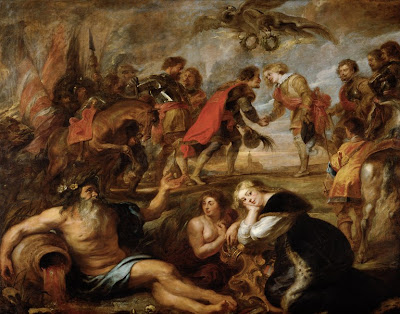 |
| "Ferdinand of Hungary meeting with Cardinal-Infante Ferdinand of Spain at Nördlingen" - Peter Paul Rubens |
I’m not the life of the party. I’m not someone who can step into a gathering and work a room. I’m pretty introverted in real life. And I’m not what you might call a mover and a shaker.
But I think of some of the opportunities I’ve had over the years, some of the people I’ve been so fortunate to meet, some of the places I’ve been able to go and things I’ve been able to do… and yeah. Lots of those opportunities came from my “network” (those quotes are me cringing at that word).
So uh… How in the world did I develop a network when I’m not good at networking?
You hear so much about how it's all about who you know, how you have to network, etc. etc. For me personally, it's not something I made a conscious choice to do.
When I look back, I think there have been two big things that helped, and they’re things anyone can do:
1. Do not think of your network as a network.
2. Build something.
Do Not Think of Your Network as a NetworkI don’t have a network, I have friends. And I’m really serious about this.
The thing about the word “networking” is that it has a mercenary edge to it, like we’re just going to get to know each other because of what we can get out of each other. And not only is that completely icky, it doesn’t work.
Because who wants to get to know someone else just because of what they can get out of them? How shallow is that relationship, and how is either party really motivated to help each other out when the time comes?
Find the people who you like and whose work you genuinely admire, and invest in those people. Become friends with those people. Don’t force it, don’t do it because they’re successful, do it because you like them and actually want to help them out.
Obviously when your network expands you can’t invest equally in everyone who is investing in you, but give of yourself what you can and treat people with respect and pretty soon you’ll be surrounded by amazing people that you’ll feel incredibly lucky to know.
And that leads to #2.
Build SomethingBuilding things opens doors. For me it was the blog and the Jacob Wonderbar novels, but other people have built groups or organizations or journals or a Twitter following or any number of things.
When you build something it’s more than just creating a platform or a bully pulpit, what’s amazing about building something is that it will ultimately attract like-minded people to you.
You’re putting a part of yourself out there, and pretty soon you’ll find that you’re drawing in other people who like the things you like and share your outlook and worldview. It’s an amazing thing, and I’ve found some of my best, real-life friends through the blogosphere and social media.
And ultimately that leads right back to point number #1. It may seem trite or twee, but look: You’re not building a network, you’re making friends.
It’s that time of year! Time for the ambitiously creative and the creatively ambitious to abandon their hobbies, social lives, family members, basic hygiene, and episodes of Modern Family (OK maybe not episodes of Modern Family), in order to pursue the ultimate goal:
Writing a novel.
In a month. In a month with a major holiday. In a month with a major holiday with only thirty days. (Tell me again who picked November?)
The novels that have been spawned by
NaNoWriMo (National Novel Writing Month) are legion, and some have gone on to great success, including WATER FOR ELEPHANTS.
Are you going to NaNoWriMo it up? And, hopefully, after you NaNoWriMo it up, will you NaNoEdMo it up in December? (That’s National Novel Editing Month to you).
I’m hard at work on Jacob Wonderbar #3, so while I have a head start and probably won’t finish in November, for all intents and purposes I am participating.
And this week I’m kicking off Year 2 of NaNoWriMo boot camp, including topics on how to start a novel, how to stay motivated, how to find the time, and much more. Stay tuned!
Last year’s boot camp topics:
Choosing the Right Idea Goals and ObstaclesHow Do You Power Through?Editing As You Go
 |
| "Der Naturforscher" - Carl Spitzweg |
One of the best parts of being a writer is the strange things you're forced to research. I was delving into some very bizarre flora and fauna over the weekend and learned way more than I ever thought I would about the climate of a very particular time period. (But I can't reveal which time because it would be a spoiler).
What's the strangest thing you've researched in the course of your writing?
This should be good.
View Next 25 Posts





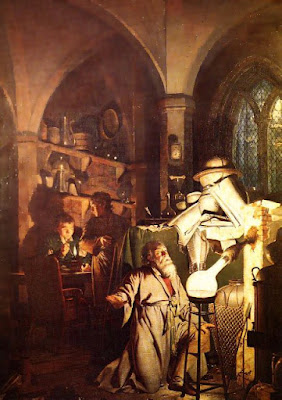
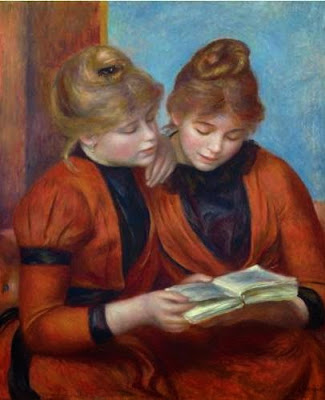

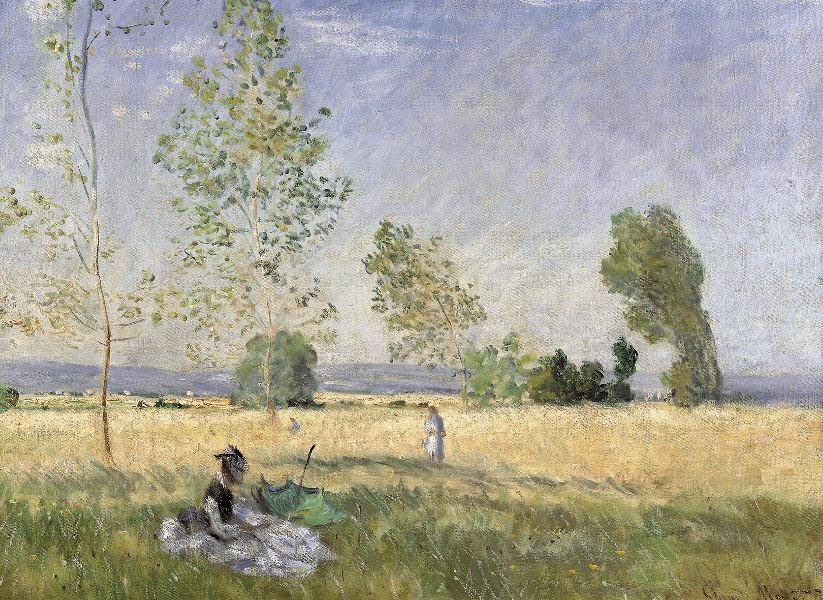

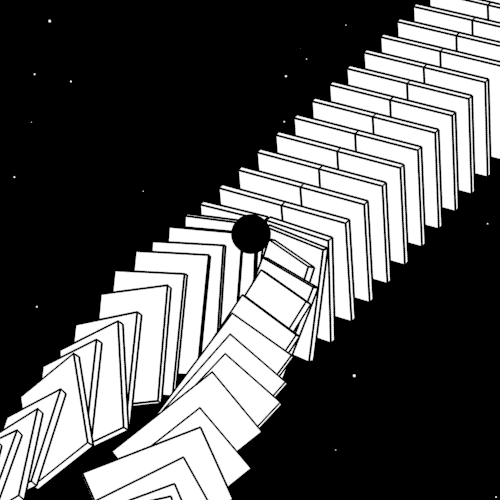
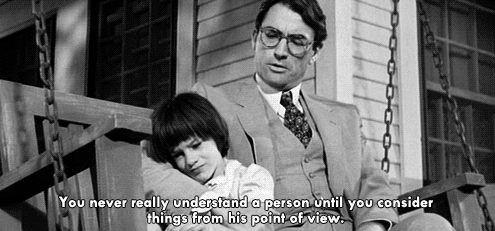


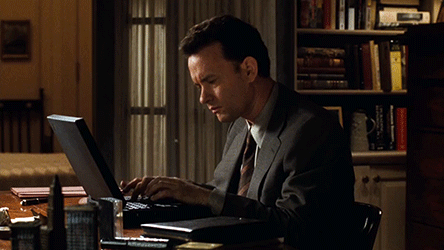
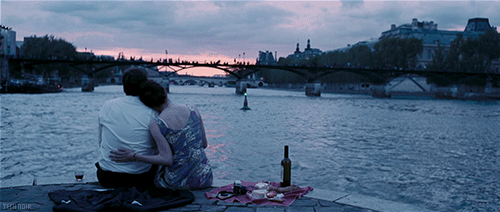
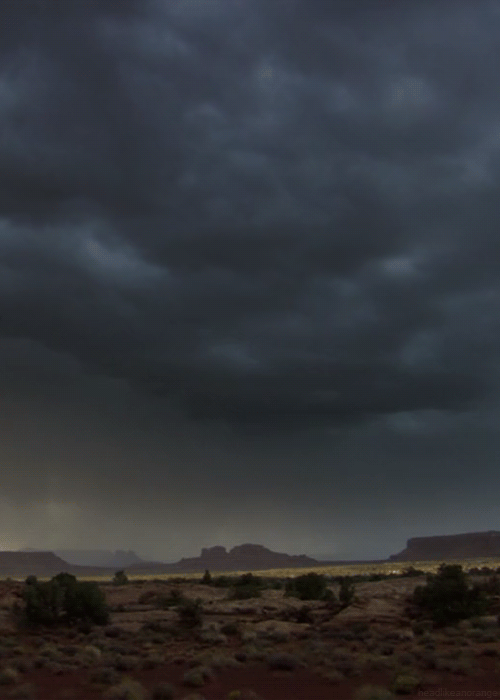
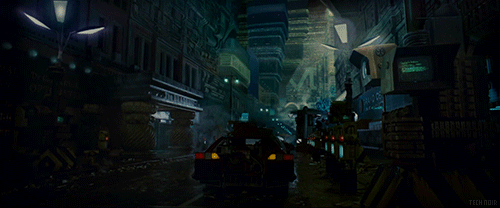








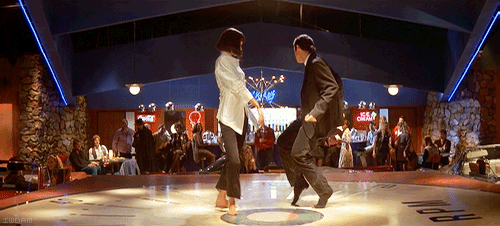
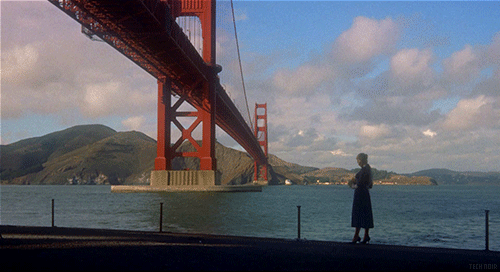
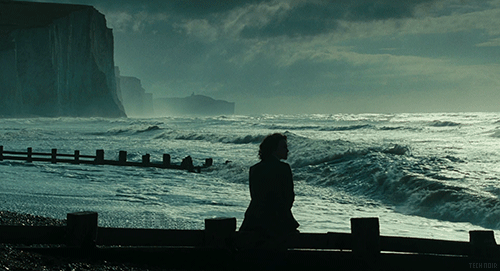



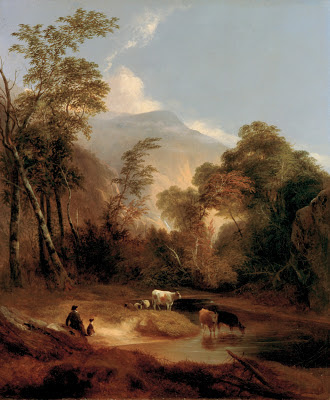
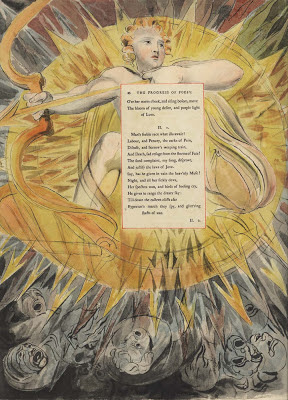



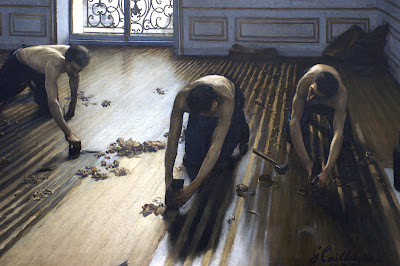

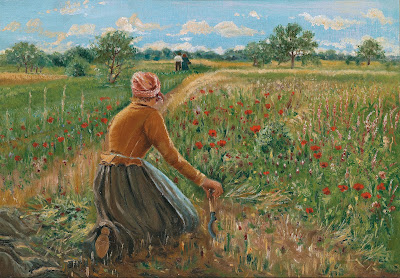



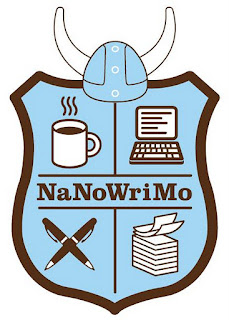

I meditate every day. Not for my writing, for my life. For my writing I spend a lot of time thinking, quietly, without music or any other external stimulus to distract me from my contemplation.
My calm comes from music - that and dancing to it. As I love the scrape and whisp of paper, reading would be next my oasis in the age of distraction.
Driving is good. Especially if it's a nice road and you can sail along quietly. A coffee and a bookstore ain't too shabby, either.
I take very long showers.
You're right; there isn't nearly enough time for thinking. The best ideas come to me when I turn off the radio and drive. I've been toying with the idea of 10-minute morning meditations.
My church, which is extremely artistically oriented, gives me a space to think whenever I attend. Growing up my religion saw art as distracting at best, heretical at worst, so it's a gift to have a place where I'm allowed to experience the divine through Art and Making Art.
As for blue lights that keep you awake, this is the best software EVAR.
I unplug. Every Sunday our family turns off the television, radio, electronics and goes retro. We talk and read and go to church and talk some more. Sometimes we take walks. Sometimes we take naps. But by taking one day hiatus from the shrill cry of phones, texts, emails, facebook, T.V., shopping, work,and sporting events, we find ourselves less dependent on it during the rest of the week. We are teaching our young children not only how to cope with quiet, but how to appreciate it. Ideas and relationships blossom in the quiet moments. I fight for them whenever possible.
I turn everything off and play with my dogs so that they are tired and then I sit and begin. I find that if I make it a part of my day I am better prepared mentally and emotionally to write
I go to sleep with my kindergartner at 8:30pm, and try to wake up at 4:30 or 5am to have a few quiet hours to focus on writing before work while the rest of the world is asleep. A lot of times I'll shut down my computer before I go to bed too - since it's an older wheezing and creaking desktop model that takes a long time to boot up, that way I don't have the temptation to waste that time checking e-mail and twitter. I also write by hand in a notebook for the same reason - fewer distractions!
So true! I absolutely need that return to calmness every once in a while. It's the reason I love to hike on weekends, and it's also the reason I'm trying to do an internet detox day once a week or so. For plotting/brainstorming, I liked going off my laptop altogether. However, with writing/editing, I just flip off the wifi.
What is the calmness of which you speak?
It sounds like a fantasy.
Just finding fifteen minutes every day where I focus on nothingness. It doesnt mean sitting idle or meditating, I could give myself those 15 minutes while on the treadmill with my music or while reading a book. Nothing of normal life and worries should penetrate those 15 minutes.It works!
I live on the edge of nowhere. There is no WiFi or cell phone reception.
I keep animals. They have to be fed, watered, cleaned up after, cared for.
The house is heated with wood. It must be cut, and split, and stacked.
I could go on, but you get the point. Plain work more than frees the mind to wander and dream.
I can relate to this, especially the part about how we used to have to be patient. Now when my students e-mail me, several of them expect me to respond right away. It's not always possible for me to respond right away, but technology has made people expect instant results.
1) Tea.
2) Wii's Just Dance (technically not unplugged, I know, but for me dancing and music sometimes help inspire story ideas).
3) There's a cat sanctuary not far from where I live. Working there is definitely as "unplugged" as I get - and it requires such focus that I couldn't possibly think of anything else while I'm there, even if I wanted to.
Even though we had to wait, we were no more patient than we are now.
Just ask anyone who hovered around the phone, waiting for an important call, in the days before cell phones and answering machines. Or watched out the window for the letter carrier.
I'm actually unplugged for a good chunk of every day. Evening is my plugged-in time.
I take a walk every day, and the commuter train is good for reading books or staring vacantly. :-)
Running every morning. I get some of my best ideas, too.
I live in Colorado and I love to hike. I was talking to someone last week and was remembering hiking in my early twenties (no cell phones) alone on a trail. Just me and my dog.
It hit me that I would NEVER do that now. What if? What if? What if? I always have that cell strapped to my side now because of What if.
I miss the freedom from my phone.
Sometimes I have to resort to silencer ear muffs to block out my neighbors' dogs.
Being a religious Jew solves this problem for me because I have to unplug completely for 25 hours each week in observance of the Sabbath.
The Sabbath is also a time when I can't do any activities that create new things, so no writing either, even by hand, which means my ideas get a chance to percolate. Sitting in synagogue, for me, is often a wonderful time for letting that happen (though I suppose I should be focused on the prayers...)
It also means I have a day where I have to plan out in advance which friends I will hang out with where and when, and patiently wait for guests who are late. When I host my friends for a Sabbath meal, I never know who's running on time or late, how late they'll be, or whether everyone will actually show up. This leads to a leisurely start to the meal, and some on-the-spot guessing as to when and whether those last stragglers will walk in the door.
I also don't get a Saturday newspaper (because I realized I never read it) so if anything important is happening in the world, unless it's going to place my life in immediate danger (like, say, an oncoming hurricane), I generally won't know about it until Saturday night.
One of my favorite things about the Sabbath, by the way, is that I can take an afternoon nap without feeling guilty. It doesn't matter how many chores/errands/projects in my life need to get done. None of them can get done on Saturdays, so I'm free to close my eyes for a while, or curl up with a good book.
Kill your television.
Abandon twitter. Do not text.
The immediacy is not adding value to the content. The high volume of very brief exposure to very insignificant facts is not developing meaningful situation awareness in your surroundings. Your OODA loop is interrupted and incomplete.
Friends are individuals with whom you speak in person or perhaps share a considered dialog in email.
I will concede your age. Limit your facebook involvement to the period following dinner before you read.
If you are in the content creation business, you need to question if your priority is on the non-content consumption business.
What made me laugh is that I found this post via checking my email while working on revisions for my editor. I'm just taking a tiny break, I swear. Anyway, this sounds new age-y but I swear by meditation and yoga. I also live in Colorado (waves at Rebecca) and love being outside--for me, being in nature brings out my creative energy. Okay, back to revisions...and more caffeine.
Oh, and huge congrats on your new book adventure, Nathan!
I wake up at 4:30. The knowledge that my city is asleep quiets my mind and it's truly the only time of day on a regular basis that my thoughts run deep. And then the blasted sun rises....desiccating those thoughts as I prey on my computer and social feeds. The brevity of that peace totally stinks.
thanks for interesting post... i really enjoy to visit this site :)
please, visit my web:
pengobatan asam urat
Great Blog. This is a very present issue for me. So far, the only successful way I accomplish this goal to quiet my mind is to leave my house and either go stay in a hotel room or, this weekend, I've rented a cabin in the Rockies for my first writing retreat of the year. peace and quiet, lots of sleep and dreaming and write, write, write.
will let you know how I get on....
I live in NYC so I talk long walks whenever I can. It's not exactly tranquil, but after so many years here the steady flutter of activity around me balances me out.
Of course, I still have my phone with me. I try not to check it that often, but it's practically a reflex at this stage... if arm doesn't slide phone out of bag or pocket every so often, brain sends instructions that 'we are falling behind'...why can't brain send same instruction about the novel I'm working on? :)
Otherwise, I find myself seeking out unplugged moments - the gym, meditation, umm that's all I can think of right now.
Elissa M, I might need to come by and help you chop wood ;)
p.s. Nathan, I've been happily distracted by your blog for awhile now, but this is my first post. Hello to you and all!
Walk. Walk beaches if you can. Read. Read layered books. Read poetry. Poetry always slows me down.Sleep is also wonderful. Enjoy sleep, Nap.
I go for long walks on the moors, and love geocaching. I am also a table tennis coach and player, and play 4 to 5 times a week - totally no tech involved in that!
I also find long showers are a great place for inspiration for my writing.
Excellent question...as always.
I believe it or not try and take advantage of commuting--sitting on a train for 40 minutes from my quiet, bucolic suburb in New Jersey to midtown, Manhattan.
I take a very early train, as I have to be to work by 7 a.m., so it isn't that difficult as most of my fellow commuters are reading, or thinking, or sleeping.
When things seem particularly tense at work, I take a walk--outside, if there is time--to just breathe different air and remind myself there is an entire world of people and activity outside my office.
And at home, I relish time by myself, whether it's an hour after my son goes to bed and before I fall asleep, or a day like today when he's at school, my wife is off teaching, and I'm taking a "vacation" day to just be home, alone, with the cat.
Because I just got back from a 2-day ski vacation, where we were outdoors enjoying sunshine and clear and well-groomed slopes, and fresh, cool mountain air, where I got a LOT of thinking done.
Vacations are important. I'm finding it true the older I get. And yes, I'm older than you so I remember EVEN having to get up out of my chair to change, physically, the channel on the television set.
And taking pen to paper, or at least pounding on a typewriter, letters to friends.
Which leads me to another one of those odd thoughts that comes to people who actually spend some time or have or find or carve out some time to think, randomly, as opposed to concentrating on any particular task or goal: is all the correspondence between creative people, you know, the "papers" biographers and historians etc rely on for research and insight, going to be lost, soon, as correspondence no longer is on physical matter (paper), and what/how will anyone know or be able to know who or what or how anything came before them, if "reality" becomes electromagnetic "bytes" of energy stored on servers?
:)
Maybe Jacob Wonderbar can either warn us about it, or save us from it?
Allbest,
T
My favorite time of day is first thing in the morning, stretching while the water boils, then reading for 10 minutes with a cup of tea. Meditation is good, whatever your definition of that is.
Walks, yes, but leave the phone at home.
Carry a book in my purse (or my Nook). I always try to take lunch. And I make time to read.
And I think I'd cry if ever I had to abandon my lazy Saturday mornings sipping tea in the sunshine.
I'm reading now about how a lot of insomnia is caused by over-stimulation. One of the recommendations I read was to unplug one hour before going to bed, and to do something quiet like read a book or write in a journal.
Since I started doing that, I have time and focus to sort out ideas and give then shape and structure.
I'll never forget what it felt like to be stood up, and have no recourse. Now you can fire up a text,
"Where the hell are you, man?"
This comment has been removed by the author.
I meditate every morning and brain-dump into my Morning Pages book. If that isn't enough, and it sometimes isn't, I take a long bath or sit on the front porch with a hot or cold drink. If even those don;t work for creating some quiet space in my world I set a timer, shut my eyes, focus on relaxing every muscle in my body and when I am fully relaxed I concentrate on counting deep even breaths. This stills me and allows the muse to cuddle back up with me.
Amen to all that--and some of the good ideas in the comments like listening to music and meditating!
Spending time outdoors in some quiet part of the natural world helps me (a city-fringe dweller over 32!). Also, spending a day without looking at my email or any social media sites helps a lot--especially if I can spend the time reading a good book instead!
Drinking a cup of tea and just letting my mind wander often helps. Also, with two young kids on two different school schedules, I spend a lot of time driving from one place to another. Sometimes I turn off the music and just think. I might be mentally working on a new story idea or I just let myself roam the imagination universe. But I try to take those moments in my day every and open myself to what's possible if I just find that moment of calmness.
Sometimes I wonder if I do it often enough, though, so this post was a great reminder of the necessity of this part of the writing process. Thanks, Nathan!
School runs. When I'm walking back from having dropped my kids off at school, or walking to collect them later, I think.
Then there's bedtime. I write my diary, I read, and I think then too.
Thanks for this great post.
Running. Mountain trails, mellow pace, lots of miles. Nature provides the calm, movement allows for the best inspiration to strike.
Walks. Beach walks in particular. Someone already mentioned showers. Lately I've been doing weekly workouts with a trainer and learning old-school dead-lifts and bench presses. Love those.
Hey Nathan, Long time no comment. The answer for me is and has been for some time, a sweet runnin' m'cycle and a long and twisty road. Happy Trails!!!